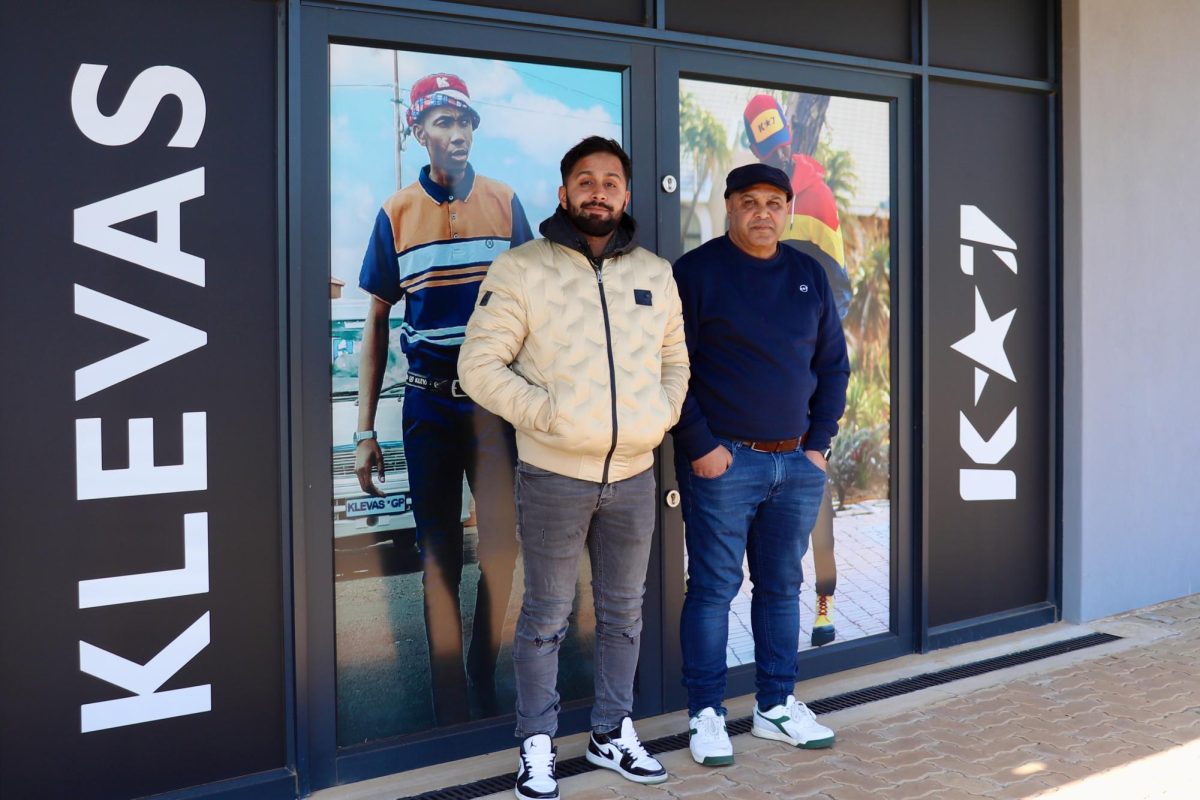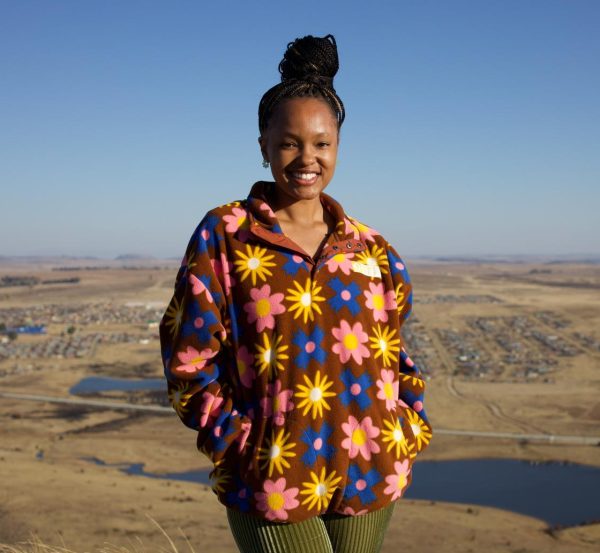Anchorville, South Africa — When the Saloojee family opened their first men’s clothing store in 1972 in the mining town of Westonaria, about 30 miles from Johannesburg, they had to find a white man to put his name on the business documents.
Even though the store was their idea and they ran all aspects of it, under the apartheid laws of the time, the Saloojee family could not own a business. They had to find a “nominee” to legitimize their store, which they called Bambinos.
“Before we got our freedom to do business, you had to have a white face to do it,” Suliman Saloojee said. “You did all the hard work. You put your finances down. But you needed a white man to do that.”
Suliman Saloojee now heads Klevas and K-Star 7, a thriving family clothing business that aims to be the “trendiest clothing brand in South Africa,” according to its website. The business, which Saloojee launched in 2002, also recently acquired the license rights to Diadora, an Italian sportswear and footwear brand. Its headquarters, located in Anchorville, a suburb of Lenasia, a large apartheid-era township designated as Indian, includes a showroom, a warehouse and a distribution center.
The original store is still in the family, owned by Abdul Jalil Saloojee, one of Suliman Saloojee’s older brothers.
After apartheid laws were repealed in 1991 and democratic elections were held in 1994, Suliman Saloojee said Black South Africans like his family saw “drastic change.”
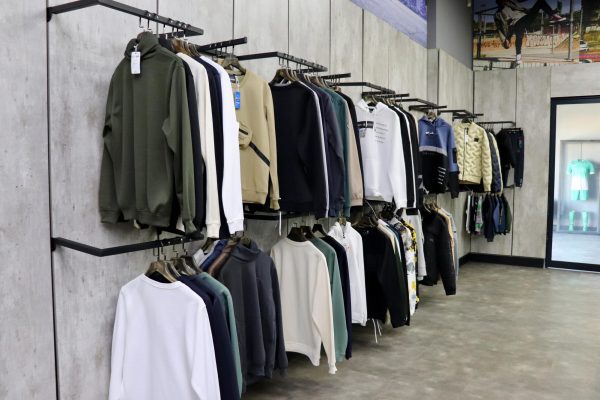
The name of the clothing line, Klevas, comes from a colloquial word commonly used to refer to a well-dressed street smart person with a hint of a gangster aura. In the brand’s early days, it was these township men the company sought to dress with stylish but affordable clothing. The company has since aimed to include a younger demographic with K-Star 7, which launched in 2008. Both brands feature a line of men’s clothing, footwear and accessories, and are sold in stores around the country and online.
Suliman Saloojee said he learned a lot from his family’s first store in those early years, which was run by his parents and one of his older brothers, Jomo Saloojee.
“My mother played a very important role,” Suliman Saloojee said. “She was an entrepreneur of note. She taught me a lot about how to buy products, how to sell products. My brother … kept the family together in terms of payments. He taught me a lot in terms of management skills, how to look after your product, how to look after your customer.”
Two of the most important lessons Suliman Saloojee said he has learned as a Black entrepreneur in South Africa are perseverance and surrounding himself with talented people. He currently has eight employees on his development team, three in marketing and six in sales.
“The reason why I’m where I am today is because of my team,” Suliman Saloojee said. “I think you cannot grow on your own. To grow as a unit, everybody must be part of it. That’s important.”
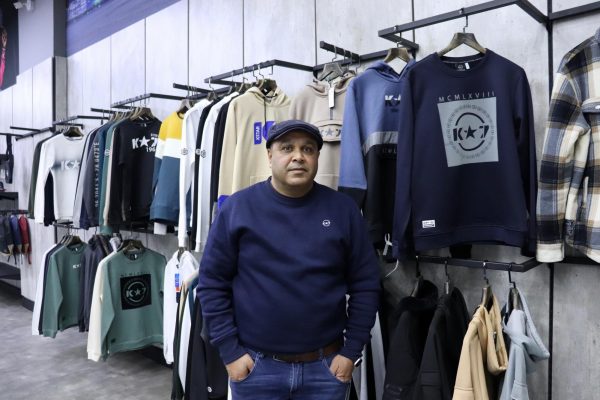
Suliman Saloojee sees himself as the “creative” part of the team. He said he wakes up every day thinking of new ideas. He checks out what young people are wearing to try to keep up with the latest fashion trends. But he also relies on other members of his team with different talents to keep him in check.
“Whatever you want to do, you look at your strengths, you don’t look at your weaknesses,” Suliman Saloojee said. “And if you build on your strengths, and you get people around you, they can work on your weaknesses [and] you are going to succeed.”
Suliman Saloojee also said a key to his company’s success is not only continually investing back into the business but also doing right by the people he works with.
“God can forgive you for everything, for anything you do,” Suliman Saloojee said. “But if you’re taking a chance with people’s money and integrity … make sure you pay everybody. That’s been the greatest success of my business, making sure that you pay people on time.”
Other family members have since joined the Saloojee brothers to help run the company, including Suliman Saloojee’s eldest son, Hamza Saloojee, who serves as chief financial officer (CFO), and his younger son, Khalil Ebrahim Saloojee, who works on the development team. Like Suliman and Jomo Saloojee, the next generation of brothers each contribute something different to the company.
“I’m more of the financier and the planner,” Hamza Saloojee said. “Then [my brother] and my dad are all about moving new fashion and new styling and new fabrics and new colors.”
The Saloojee sons are also learning from their elders. Hamza Saloojee credits his uncle and father for honing his business acumen.
“I think the main thing that I’ve learned from them is composure, patience and how to be astute in terms of navigating your way through the business world,” Hamza Saloojee said.
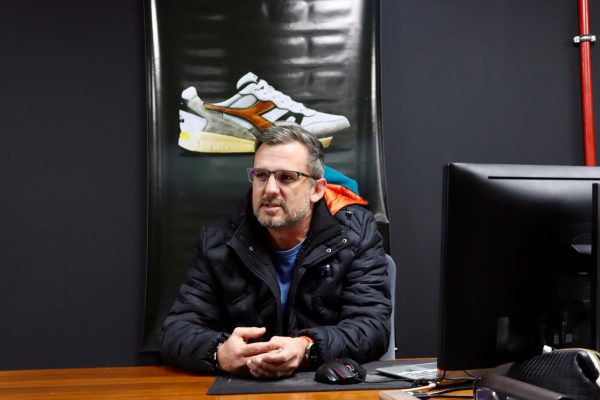
Though not related to the Saloojees, Marchant Pretorius has become family. Suliman Saloojee created an opportunity for Pretorius when he launched Klevas two decades ago, first employing him to do IT work. Pretorius, who now serves as head of development and manages the Diadora brand for the company, referred to Suliman Saloojee as a “second dad.”
“Everybody who comes in is part of the family,” Pretorius said from a desk in a suite of offices filled with clothing samples. “That’s what we try and do … because if you work in family, it’s easier than working for a boss.”
Brighton Mhlongo, a Diadora brand ambassador and former goalkeeper for the national South African soccer team, said “family” is what draws him to promote the company as well.
“We’re just pushing one big family,” Mhlongo said.
For all of the Saloojees, an important aspect of their company’s philosophy is giving back to the community, whether that comes from donating clothes or food to the community, or taking a chance on new sellers who may not have the necessary capital to buy product when launching their businesses.
“When you give, God gives back, and I believe in that,” Suliman Saloojee said.
Jomo Saloojee echoed his brother.
“It’s not all about the money,” said Jomo Saloojee, seated in a conference room overlooking a vast warehouse filled with boxes of merchandise ready for distribution. “It’s about values.”
Classified by the apartheid government as Indian, Suliman Saloojee said his family was involved in the anti-apartheid struggle, specifically with the African National Congress (ANC). Their awareness of racial and economic inequalities has guided Suliman Saloojee’s business practices and what he sees as the role of the family business.
“I think as entrepreneurs, we must think big,” Suliman Saloojee said. “We must have an understanding that we need to grow, we need to create employment, we need to create [jobs for] people to have a good, honest living.”











































